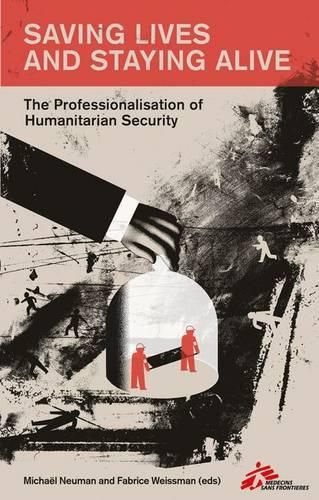Readings Newsletter
Become a Readings Member to make your shopping experience even easier.
Sign in or sign up for free!
You’re not far away from qualifying for FREE standard shipping within Australia
You’ve qualified for FREE standard shipping within Australia
The cart is loading…






Much like the large commercial companies, most humanitarian aid organisations now have departments specifically dedicated to protecting the security of their personnel and assets. The management of humanitarian security has gradually become the business of professionals who develop data collection systems, standardized procedures, norms, and training meant to prevent and manage risks. A large majority of aid agencies and security experts see these developments as inevitable – all the more so because of quantitative studies and media reports concluding that the dangers to which aid workers are today exposed are completely unprecedented. Yet, this trend towards professionalisation is also raising questions within aid organisations, MSF included. Can insecurity be measured by scientific means and managed through norms and protocols? How does the professionalisation of security affect the balance of power between field and headquarters, volunteers and the institution that employs them? What is its impact on the implementation of humanitarian organizations’ social mission? Are there alternatives to the prevailing security model(s) derived from the corporate world?Building on MSF’s experience and observations of the aid world by academics and practitioners, the authors of this book look at the drivers of the professionalization of humanitarian security and its impact on humanitarian practices, with a specific focus on Syria, CAR and kidnapping in the Caucasus.
$9.00 standard shipping within Australia
FREE standard shipping within Australia for orders over $100.00
Express & International shipping calculated at checkout
Much like the large commercial companies, most humanitarian aid organisations now have departments specifically dedicated to protecting the security of their personnel and assets. The management of humanitarian security has gradually become the business of professionals who develop data collection systems, standardized procedures, norms, and training meant to prevent and manage risks. A large majority of aid agencies and security experts see these developments as inevitable – all the more so because of quantitative studies and media reports concluding that the dangers to which aid workers are today exposed are completely unprecedented. Yet, this trend towards professionalisation is also raising questions within aid organisations, MSF included. Can insecurity be measured by scientific means and managed through norms and protocols? How does the professionalisation of security affect the balance of power between field and headquarters, volunteers and the institution that employs them? What is its impact on the implementation of humanitarian organizations’ social mission? Are there alternatives to the prevailing security model(s) derived from the corporate world?Building on MSF’s experience and observations of the aid world by academics and practitioners, the authors of this book look at the drivers of the professionalization of humanitarian security and its impact on humanitarian practices, with a specific focus on Syria, CAR and kidnapping in the Caucasus.